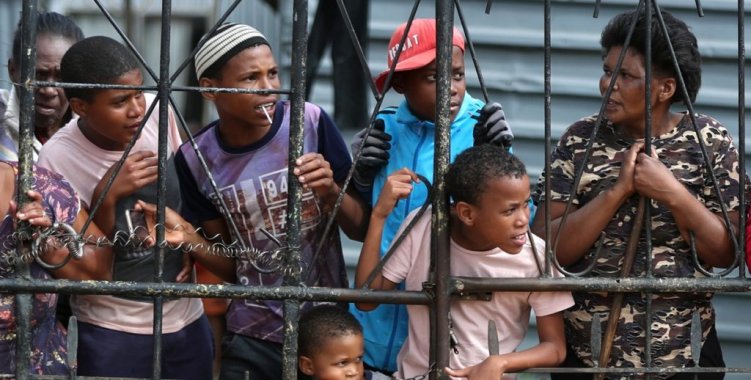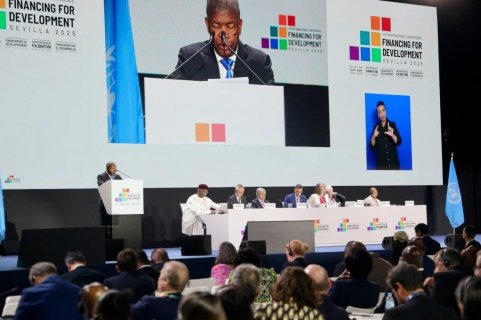The four entrances to the Casas Brancas sector, in the UGP neighborhood are closed: one with pins, another with tree trunks, another one further ahead with an army armor. The police presence is not massive, but the mediatization of health risk in the area seems to be sufficient to keep people away.
On the other side of the sanitary cord, there are practically no residents in sight.
It was in this area, now considered to be of high risk, that several contacts were identified of the so-called patient No. 26, an Angolan who returned from Lisbon on 18 March and that the health authorities associate with the first case of local transmission in the country.
Their displacement in the neighborhoods of Futungo de Belas (Talatona) and Cassenda (Maianga), implied the imposition of a sanitary cord that forced almost 200 families to confine.
Some residents contacted by Lusa complain of having been caught off guard and the lack of support from the Government.
“This happened without notice. [On Sunday] I was going to throw out the garbage and they told me to go back ”, said a resident who asked not to be identified, lamenting the lack of water and saying that he is already rationing the food that he still has at home.
Also under the condition of anonymity, a resident was also concerned about the scarcity of water.
“I had to ask my sister to bring water,” he said, as he carried several bottles of mineral water in a wheelbarrow to supply his six-person household.
"We have had no support from the government," complained the woman.
A little ahead, a young man was also returning to the neighborhood carrying heavy bottles.
As they cannot go out to shop, the solution is to enlist the help of family members or friends who take the car orders and leave them outside the sanitary cord so that the residents can come and collect them, Lusa said on the spot.
“We want to know when they are going to solve our problem. They could let go to buy only what was necessary ”, lamented another resident.
Although there are some canteens (small grocery stores) in the neighborhood, many residents prefer to resort to outside help.
"Many families do not want to buy in there, so we advise that if they have family members who can buy what they want to ask to bring to the fence and communicate by phone to come and get it," said the rapid response coordinator to covid-19, Rosa Moreira.
The official explained that the stores inside the neighborhood are still open to give people the possibility to acquire their goods, but recommendations were given to avoid crowds “and only go one person per family” to shopping.
In addition, water cisterns “continue to enter to supply families”, in addition to guidelines to ensure the distribution of basic food baskets to families without means of subsistence.
Rosa Moreira also denied that the residents were not warned, stressing that since the beginning the teams have been working with the population.
“They were told that there was a case, that it was removed from the community, and that everyone would have to increase their precautions and preventive measures. They were followed up since the announcement of the first case that left there and when the other contagions were announced - practically the whole family was positive - on Saturday, we worked in that area with people who had more direct contact ”, he said.
Another person heard by Lusa, who asked not to be identified, criticized that "no one can go anywhere", adding that she was not allowed to take her daughter, who has allergies, to the hospital.
Rosa Moreira guaranteed, however, that the health authorities are prepared to provide the necessary health care, maintaining two ambulances on site.
"There is a permanent nurse and, if it is necessary to take him to the hospital, this is assured", he guaranteed.
In the Futungo area there are about 120 families confined, while in Cassenda another 40 are subject to the sanitary cord.
“We made an entire assessment that justified making a sanitary cord, after defining a perimeter where there could have been local transmission”, stressed Rosa Moreira.
The coordinator stressed that the Ministry of Health is trying to ensure that everyone is tested in 10 days “so that, on the 14th, there are results and the decision can be made”.
The sanitary cord, he warned, will only be lifted "with negative results".
Rosa Moreira said she understood people's frustration with a decision that conditions their freedom, but called on the population to follow the recommendations.
"People react in different ways, some are more aware, others want to leave because they have their commitments, but we ask the population to work with us on this because they are measures for the protection of everyone, for the good of the population and their families" , stressed.







